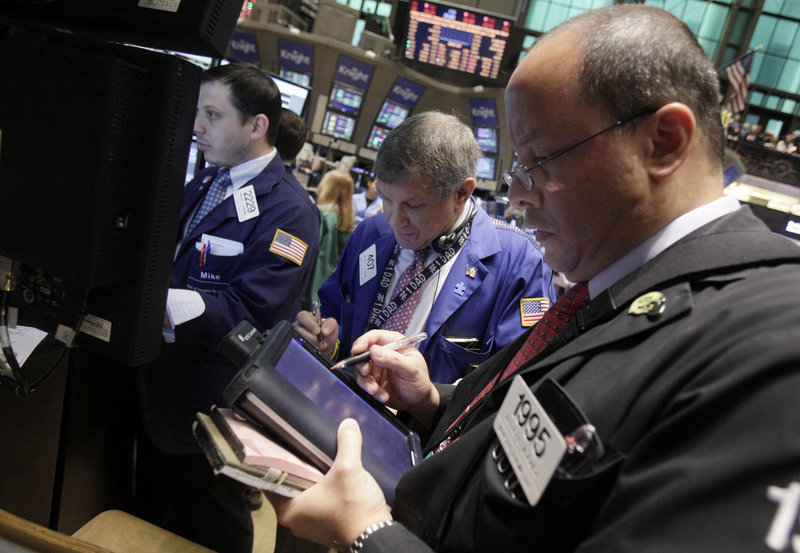Anxiety about a deadline to raise the nation’s debt ceiling swept across Wall Street on Wednesday and drove the Dow Jones industrial average down almost 200 points. With Washington showing no sign it will find a solution, financial planners around the country said their clients were increasingly worried.
The Dow took a sharp drop during the last two hours of trading and closed down for the fourth session in a row. The declines have grown each day. The market turmoil was a sign that consequences of the debt fight were beginning to materialize in earnest.
With six days to go until the Treasury Department’s Tuesday deadline — raise the national borrowing limit or face an unprecedented federal default and unpredictable fallout in the economy — analysts suggested the market would only grow more volatile.
“The longer we go without any type of hope or concrete plans for resolution, the more concerned investors are going to become,” said Channing Smith, a managing director at the financial firm Capital Advisors Inc.
While no one was panicking, financial professionals who handle the investment accounts of everyday Americans — college funds, retirement accounts and other nest-eggs — said their customers were growing more worried by the day.
One said he had not seen this level of anxiety since the 2008 financial crisis.
“We’re getting a ton of calls,” said Bob Glovsky, president of Mintz Levin Financial Advisors in Boston. “It’s all, ‘What happens if the U.S. defaults? What’s going to happen to me?’ “
The Dow finished the day down 198.75 points, at 12,302.55.
While the decline was not close to the stomach-churning days of the fall of 2008, when the Dow lurched lower and higher by 700 points some days, there were signs that fear on Wall Street was growing. The Dow fell 43 points Friday, 88 points Monday and 91 points Tuesday, then more than twice that on Wednesday.
Without a deal by Tuesday, the Obama administration has said the government will be unable to pay all its bills, and could miss checks to Social Security recipients, veterans and others who depend on public help. In addition, credit rating agencies could downgrade their assessment of the government’s finances, further unnerving financial markets and perhaps causing interest rates to rise for everyone.
“We’ve been through this, or something like it,” said Leisa Aiken, a financial planner in Chicago. “I think what we went through in 2008 has toughened clients up a little. They realize that they will get through it if they don’t give in to a knee-jerk reaction.”
The tone of the market changed this week, as nervous investors began moving money out of stocks, said Howard Ward, a chief investment officer at asset manager GAMCO.
Ward said the stock market will likely become more volatile as the weekend nears, and while he said he was not repositioning his portfolio, he admitted: “Right now I’m pretty worried.”
Send questions/comments to the editors.



Success. Please wait for the page to reload. If the page does not reload within 5 seconds, please refresh the page.
Enter your email and password to access comments.
Hi, to comment on stories you must . This profile is in addition to your subscription and website login.
Already have a commenting profile? .
Invalid username/password.
Please check your email to confirm and complete your registration.
Only subscribers are eligible to post comments. Please subscribe or login first for digital access. Here’s why.
Use the form below to reset your password. When you've submitted your account email, we will send an email with a reset code.